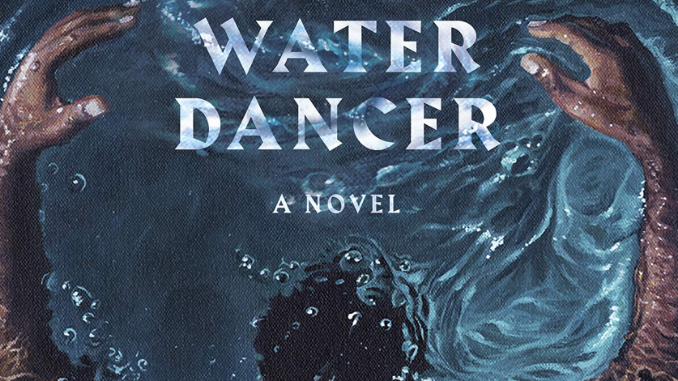
Published by One World on September 24, 2019
Genres: Fiction, Historical, Speculative
Buy on Amazon
Goodreads

Young Hiram Walker was born into bondage. When his mother was sold away, Hiram was robbed of all memory of her — but was gifted with a mysterious power. Years later, when Hiram almost drowns in a river, that same power saves his life. This brush with death births an urgency in Hiram and a daring scheme: to escape from the only home he’s ever known.
So begins an unexpected journey that takes Hiram from the corrupt grandeur of Virginia’s proud plantations to desperate guerrilla cells in the wilderness, from the coffin of the deep South to dangerously utopic movements in the North. Even as he’s enlisted in the underground war between slavers and the enslaved, Hiram’s resolve to rescue the family he left behind endures.
Ta-Nehisi Coates has established himself as one of the top essayists of the 21st century. His article in the Atlantic on reparations pretty much single-handedly revitalized national discussion on the topic. Between the World and Me, a series of letters written to his young, Black son is a volume I’ve listened to multiple times as the (white) parents of a Black son. His memoir, The Beautiful Struggle, and his essay series, We Were Eight Years in Power, are both beautifully written and powerful.
With that sort of buildup, you may be sensing a but coming along and…yes. The Water Dancer is Coates’ first novel and it shows. It’s still beautifully written. It still hits on powerful and important themes. It’s an enchanting, poetical story of magical realism and captures the ethos of slavery in the South. But.
The Water Dancer struggles to be a novel. Every admirable character is given the voice of Ta-Nehisi Coates. Whether it’s Hiram or any those whom he meets as part of the Underground Railroad, the characters speak in monologues and essays—beautiful ones, mind you, and powerful—but it slows down the plot-driven story as the main thing (or what’s supposed to be the main thing) recedes into the distance.
The Water Dancer’s plot coves Hiram, who is a slave (“the Tasked”) on a waning tobacco plantation in Virginia. His biological father is the white plantation owner, while his mother was one of the Tasked who was sold while Hiram was young. Hiram has a photographic memory, except he remembers nothing about his mother. However, while driving across a bridge, he suddenly has a vision of his mother dancing. When the vision ends, he discovers that the carriage has fallen into the water. His half-brother—the white heir to the plantation—drowns, but Hiram is suddenly transported out of the water. Through this, he learns that he has the supernatural ability of Conduction, which allows him to transport himself and others instantly across long distances. This is, of course, of great value to The Underground Railroad, where Hiram hones his powers in order to free his people.
Coates’ metaphor through the plot is impeccable. Hiram’s powers only activate when remembering a memory that he has forgotten. His message to the Black community appears to be that liberation and freedom only begin when they truly look upon, accept, and remember their past. To the white community, his message is that we must look fully upon our cultural past and America’s flourishing only at the expense of Black bodies. America as a united whole cannot move forward unless the past evil of slavery is looked full in the face. It’s an engaging, enrapturing metaphor.
Ta-Nehisi Coates also uses very specific language to make his point. The enslaved are never called such. They are “the Tasked,” while landowners are called “the Quality.” It forces readers to consider why what should be a much more charged term—slavery—would have less of a rhetorical force than “Tasked.” Coates also has Hiram exclusively refer to the landowner as “my father” and his charge as “my brother.” It highlights the inequality, particularly with Hiram being the plantation owner’s son.
All of this is good, but the internal structure of the novel as a novel itself is weak. There’s a marked inequality between Coates ability as an essayist, which comes out in his characters’ conversations, and his ability as a novelist, which is made evident in the structure around which those conversations are set. The failures of the plot stand out in contrast to Coates’ mastery of conversation.
All this to say, The Water Dancer should still be read. Don’t skip by it. It deserves to be wrestled with and Coates, to his credit, has made a valiant attempt to engage a different type of audience. And, you know, it does hold almost universal acclaim, so maybe the criticisms are just me. Go and read this book. It’s not perfect, but you can do a lot worse.
